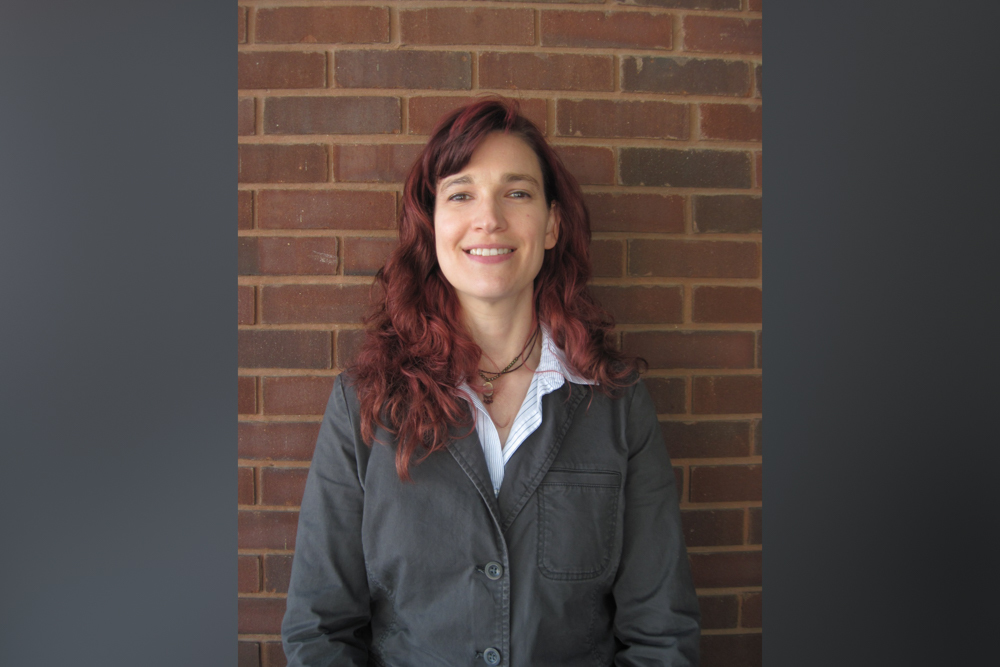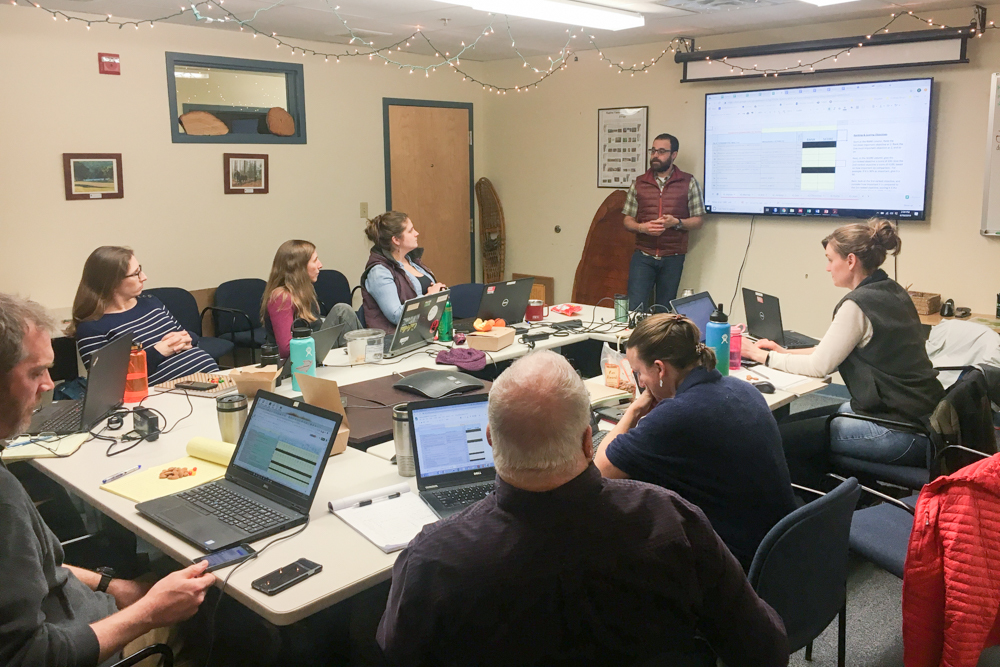I love listening to the ‘story’ of the problem, sifting through the complexity to figure out what is important and what information or voice is missing, asking the right questions to help them see the problem from a new perspective, and helping them work all of the “messiness” into a clear, identifiable problem that can be formally analyzed.
Katrina Alger ’08
Managing coral disease, conserving salt marsh sparrows, and testing for white-nose syndrome in bats – what do all these projects all have in common? They’re all examples of natural resource management decisions made by people, with all their particular values and foibles.
And as Katrina Alger ‘08 knows all too well, getting people to the same table and on the same page is much harder than actually implementing solutions. She’s an ecologist and decision analyst-in-training for the United States Geological Survey.

“As scientists, we often fall into the trap of believing that as long as you have good science, you have everything you need to make a good management decision, which is just not true,” Alger said. “Decision analysis provides an alternative way of thinking by acknowledging that science doesn’t make decisions – people do. And people have values.”
One of her current projects is with white-nose syndrome in bats, a fungus that grows on the skin of hibernating bats and has killed millions of them in North America in the last 10 years. Alger explained that, with wildlife diseases that don’t directly impact human lives, there’s no governing body like the CDC that regulates testing metrics.
“That means any standardization has to occur through consensus building,” Alger said. Her role in combating the syndrome is to help create a consensus between different laboratories in how they test for the fungus. Different labs have had different thresholds for positive and negative results, so they’ve sent inconsistent readings to the National White Nose Response Team.

Why does bat health matter to people, outside of conservation and enthusiast groups? That’s one of the questions Alger has to consider.
“There was a cool study a few years ago that estimated bats contribute approximately $3.7 billion worth of insect control to farmers in the United States,” said Alger. “There are also fruit-eating and nectar-feeding species of bats that serve critical ecosystem functions as seed dispersers and pollinators. So they play critically important roles in both natural and manmade systems.”
Alger loves the problem-framing part of her job – talking with key stakeholders to determine their interests, concerns, priorities, the scale and scope of the problem, and the tipping point that led them to reach out. She said that we tend to overestimate someone else’s understanding of their own needs and wants. But articulating those is the most important step to making a good natural resource management decision.
Sometimes, if there’s tension between stakeholder groups, negotiation or conflict transformation become a step in that process.
“I love listening to the ‘story’ of the problem, sifting through the complexity to figure out what is important and what information or voice is missing, asking the right questions to help them see the problem from a new perspective, and helping them work all of the “messiness” into a clear, identifiable problem that can be formally analyzed,” Alger said.
Alger said there’s currently a movement in the field of wildlife health toward looking at problems through a holistic lens. Alger worked in the healthcare sector for six years before finishing her undergraduate degree, so applying holistic health concepts to ecosystems comes naturally to her.
“This kind of thinking is much more in line with preventive and community medicine in humans and acknowledges the fact that health is both a biological and social construct, so in some ways I feel like I’m coming back to my sociology and human health roots,” Alger said.
When Alger came to EMU, she planned on pursuing a nursing degree, but ended up double majoring in applied sociology and history, with a minor in biology. She had a wide range of passions and interests – from medicine to literature to social and environmental justice. But after she encountered the philosophy of “One Health – the idea that the health of people, animals, and the environment are all interdependent,” she found herself most interested in wildlife health.
Through a bit of a winding journey, Alger went on to earn a Master of Science in conservation biology from the State University of New York, and then joined the United States Geological Survey.
“None of my previous work experience was environmental or conservation related,” Alger said. But “luckily, soft skills like communication, time management, teamwork, and working with the public are all highly transferable!”
